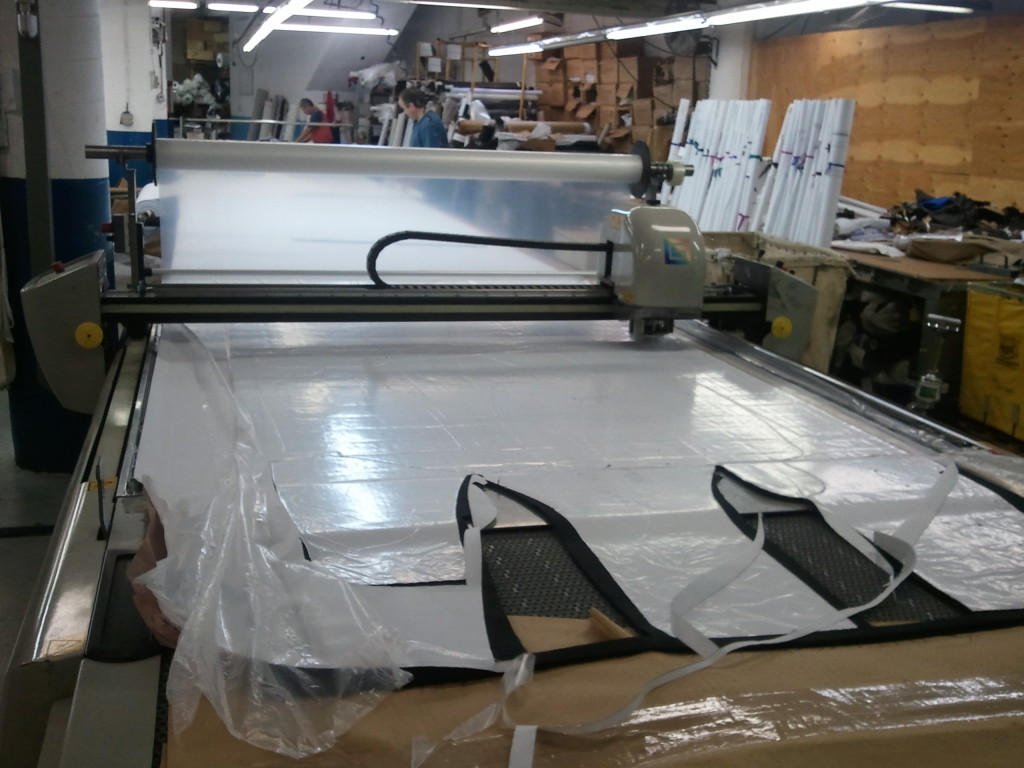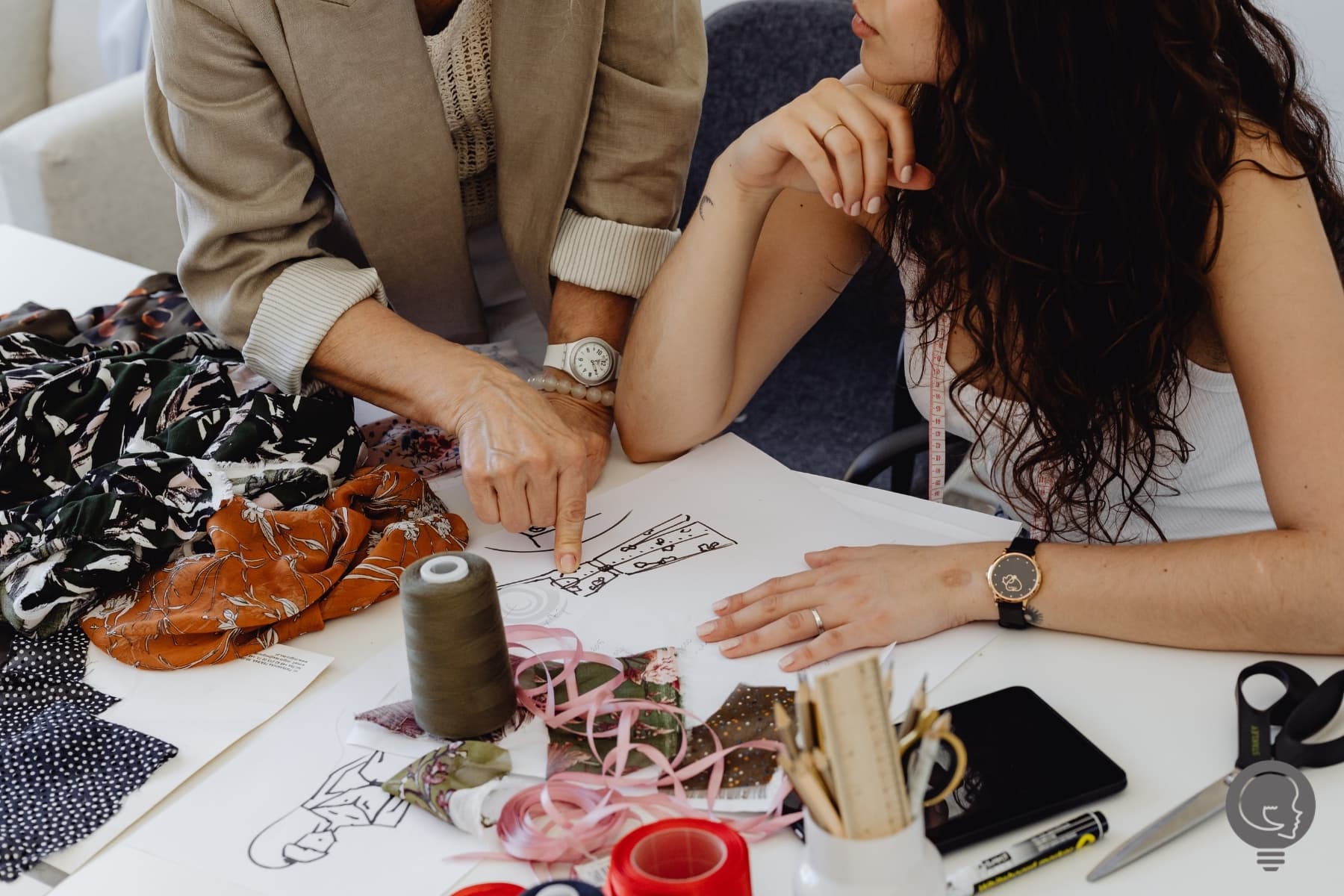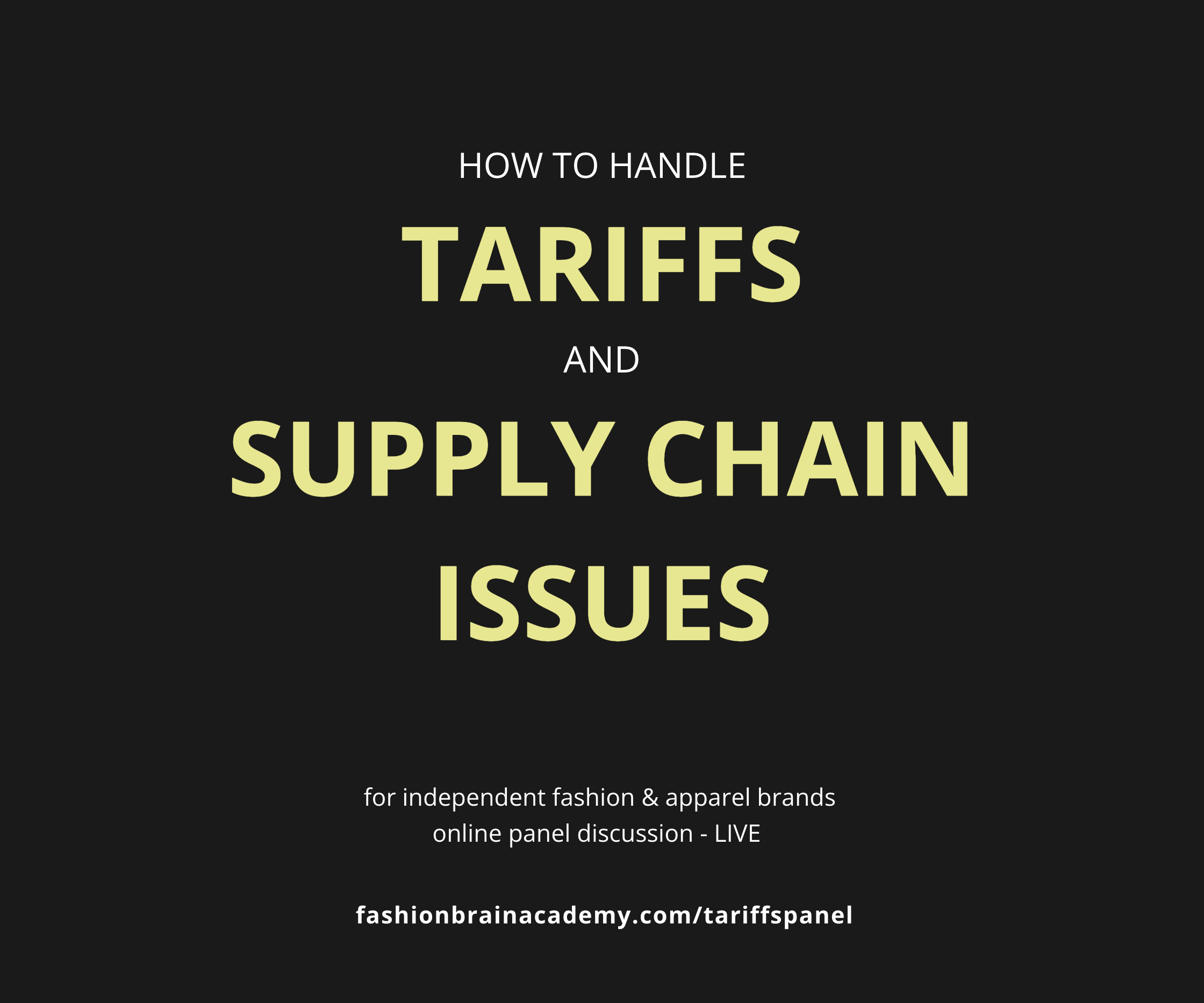A designer asked me for a few quick tips for his first experience working with a sewing contractor. While there’s a ton more to say (and I cover it in the New Designer Program) I think this is pretty good start and worth sharing with everyone!
1) Give your sewing contractor a purchase order when you place a production order. List the quantity and styles you’re ordering, the agreed-upon price, the delivery date they promised, etc.
2) Sewing contractors generally get paid the day you pick up the goods. Sometimes you will be asked to put down a 50% deposit when you place a production order.
3) Give your contractor a cutting ticket for each order. It should include the style # and name, pattern number, an image of the piece, colors/sizes, quantity, swatches of colors and/or combinations, and sewing details/instructions.
4) With production manufacturing, you pay by the piece. For samples, you might pay by the piece or by the hour. Be sure to clarify this up front.
5) Getting samples made can cost double or triple the price you’ll pay for production. This is important to know when you’re deciding how many styles and what product categories will be in your line.
6) Don’t get too excited about price breaks from your contractor if you order a higher quantity. For instance, your contractor tells you that if you order 100 pieces of a style, it will cost $3.00 less per piece to produce (or $.50, $8.00 – whatever). Do you really need 100 pieces of that style? Do the math – even though you save some money per piece, are you going to be sitting on 50 pieces hoping to sell them? DON’T be tempted because carrying inventory will kill your cash flow and your business.
7) Pad your production time. Murphy’s Law is never truer than when you’re in the middle of producing your line. Give yourself a little wriggle room. I suggest adding 2 weeks of ease to production time and a week for fabric delivery whenever possible.
8) Give just enough fabric, buttons, labels, etc. to your contractor. Give what they need and no more (yes, you can allow for a few broken buttons or zippers…). This will keep everyone on their toes and you’ll be aware of any mistakes. As you grow to trust the factory, you can loosen up a bit.
9) Treat people with respect – no matter what. It pains me when I hear how some designers talk to their contractors. Just because they work for you and you’re paying them, it doesn’t mean you can be a diva designer or boss them around. Situations with manufacturing can get very tense and stressful. This is not license to be a bitch. When you start treating contractors as partners, everything goes better.
10) Pay on time. Keep your word. Word travels fast in this industry.
So what about you? Do you agree with my tips? I’d love to hear your own tips and what you think works! Please take a minute let me know by leaving a comment below. Thanks!
Jane




20 Responses
Thank you from the bottom of my heart. This is just the article I need to point my clients to.
Great advice
My pleasure!
My friend and I are looking for a reliable sewing contractor for our awesome 8 piece clothing line aimed at middle aged women… Ready and excited to get started!
Go Anne! I’m rooting for you two.
Hi there,
I know many sewing contractors in Viet Nam. If you are interested, please let me know. Great work and reasonable labor cost.
Hi Jane!
I came across your page while searching for bridal gown manufacturing in the USA. Great articles by the way!! I was hoping you could point me in the right direction, I am interested in knowing where you use to get your dresses produced? I am looking for a high quality experienced production company to produce my first bridal line.
Thank you in advance:)
Hi Colleen,
A good place to start is http://makersrow.com/. I know it takes time and a LOT of networking / trial and error to find the right factory. Wishing you the best with your business!
Jane
Hey Jane!
Can a 17 year old be a fashion designer? How do I get garments made because i dont know how to sew! Do i have to know how to sew to sell to buyers & do buyers take young people seriously?
Hey Jane, I want to find a sewing contractor who will help me with my first line of 12 pieces to show at any fashion show, and if you have any information on how I can get my line in the fashion show please let me know. Thanks!
Does the brand need to provide the thread, or should the sewing contractor already have that?
Hi Jasmine,
Usually the contractor has thread for the “regular” colors – black white, navy, red… The brand brings the thread when it’s a color that really needs to be matched properly or in a special way.
– Jane
Hi Jane, I came across this page – would love anyone’s help or information. We are small children’s clothing company in southeast and we are looking for sewing contractor. Between my few seamstresses and I we made 6000 garments last year – I have long line of customers waiting but we are just not able to produce more. Please help or point me into some helpful direction.
Currently hoping to launch our athletic apparel line. This is great advice, thank you! Wondering if you have input on whether it is smart to stay stateside in the US with a sewing contractor, or look for a company via sites like alibaba for one. Overseas contracting gives me anxiety, but not sure if the cost reduction is worth it? Any input on experiences or recommendations are apprecaited!
If you’re looking for manufacturers, here are some great resources for apparel and accessories.
Premium Manufacturing
Bambify is a great resource for overseas apparel manufacturing in areas known for their craftsmanship such as Japan, Europe, etc. It’s 100% free to use and contact manufacturers, and they’ve been pre-vetted before being listed on the platform for quality service and English ability. They also list which manufacturers are “Startup Friendly” (willing to work with newbies).
By producing with these manufacturers, you get access to their strict quality control systems so you won’t have to worry about your products not coming out the way they were promised in your sample.
Some of the manufacturers also sell their own products, giving you the option to white label or even collaborate with their designers to make something fresh for production.
Cheap Manufacturing
Alibaba is a great resource for finding manufacturers in areas such as China, Vietnam, etc. Though quality control is still a concern here.
Domestic Manufacturing
For US manufacturers, Makers Row is the way to go. Though they tend to have outdated machinery that might not be able to do what you’re looking for.
*Note: I work for Bambify.
Thank you! Thank you! Thank you!
I needed this and I so appreciate it.
Every upstanding contractor appreciates your comments. I represent a contractor, Authentic Concepts, located in Provo, Utah, that has been in business for 37 years. We treat every customer, regardless of size, with integrity, as if we are an extension of that company. We value our relationships and go above and beyond to help make the customer successful. The process works best when there is mutual respect and appreciation.
Compare contractors, ask questions, and above all visit the facility. You can tell a lot about the contractor by the cleanliness and organization of the facility. Ask about quality control. Do your homework before arbitrarily retaining just any contractor. For every 1 good contractor, there are 9 not so good. Good luck.
A contractor in Utah! Awesome. Thanks for commenting, Derek. – JH
I love all of the tips you gave on working with sewing contractors. Most importantly, I’m glad you mentioned the importance of treating them with respect! The contractors are doing their best to create the product you’ve sent them, and if you show them respect, they’ll show you respect too!